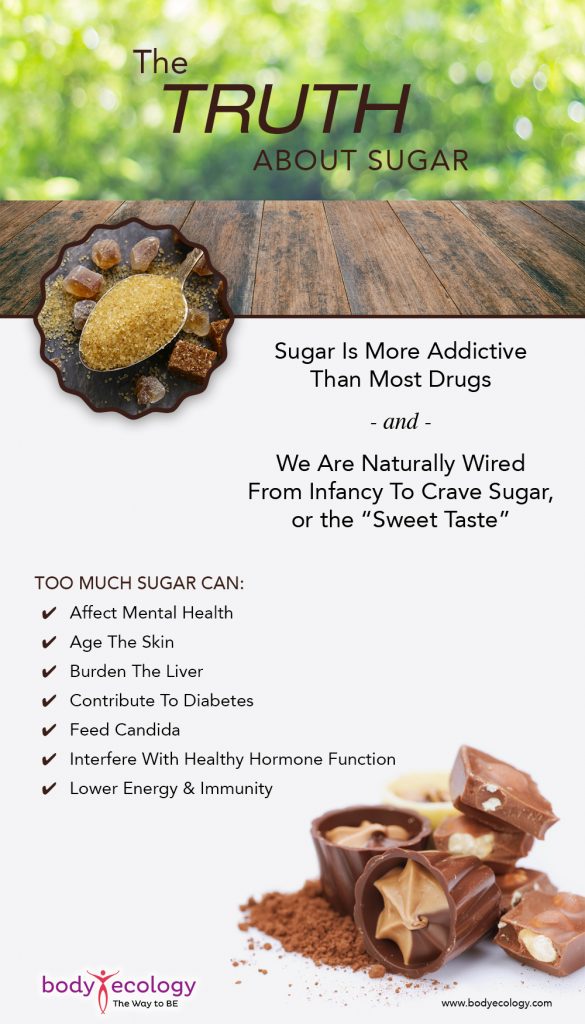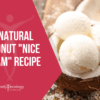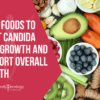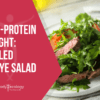Keeping Your Kids Healthy After Halloween: Coming Down from the Sugar High
If your kids are feeling a little foggy, achy, or sniffly after Halloween, they are responding to the massive sugar highs (and lows) that could set the pace of their health for the entire winter season. Coming into the holidays prepared with some helpful and healthy Halloween tips for parents can make a big difference.
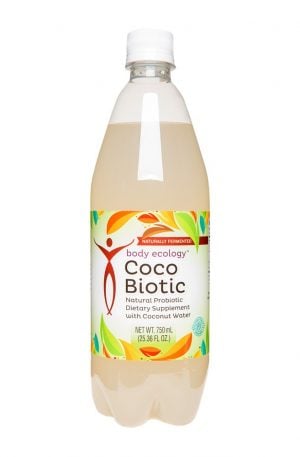
Believe it or not, sugar is considered to be a drug that is more addictive than cocaine. You can help your kids recover from the aftermath of Halloween by encouraging them to drink a liquid probiotic each day. Several ounces of Cocobiotic a day can support children’s gut health and boost the immune system.
For many of us, the upcoming holidays are tricky. This is because so many celebrations involve food and family. And to have a good time, we often feel the need to participate — even though it may wreak havoc on our health later.
Nothing is more effective for preventative care than diet. This is especially true for anyone who struggles with imbalances in the gut, such as gas, bloating, and headaches, and more serious disorders like an autoimmune disease.
When managing these chronic health conditions, everything that we choose to eat or give our children matters.
Why Your Kids Love the Sugar High
Part of what makes sweets and sugary treats so much fun is the good feeling that we get when we eat them.
As it turns out, we are naturally wired from infancy to succumb to the titillating effects of sugar.
For example, in newborn babies sugar is an effective painkiller. So much so that doctors prefer to either give sugar water to an infant or to let a newborn nurse before vaccination, circumcision, or a heel prick.
This is because mother’s milk, which is full of sugar, and sugar water are both able to reduce the sensation of pain. Physicians speculate that the analgesic effects of sugar are available until an infant reaches around one year of age.1,2
Drugs that oppose the certain opioid receptors in the body can also block the numbing effects of sugar. According to researchers, this suggests that the opioid pathway is involved.3
This means that sugar may stimulate the release of endorphins.
Endorphins are natural opiates that are made within the body. Endorphins are responsible for things like a “runner’s high,” the bonding that occurs between a mother and her newborn, and even the numbing effects of sugar.
Is Sugar a Drug?
If sugar can stimulate the release of endorphins in infants, what does this mean for children and adults who need a daily sugar fix? The addictive and drug-like effects of sugar do not end in infancy.
It turns out that sugar is more addictive than cocaine and surpasses what is known as the “cocaine reward.”4
However, just because the human body is designed to translate sweets as a sedative does not mean that we should indulge in sugar with abandon. And yet, we have.
In the past 200 years, we have seen an incredible increase in sugar consumption. Consider the fact that:
- In 1822, the average person consumed 6.3 pounds of sugar a year.
- In 1999, the average person consumed 107.7 pounds of sugar a year.
- Today, the average person consumes about 3 pounds of sugar a week, or 150 to 170 pounds a year.
- This adds up to 3,550 pounds of sugar over a lifetime.
This may be due to the fact that we see sugar — especially refined and heavily processed sweet stuff — as food. While sugar offers a way for cells to produce energy, too much of it causes the body to become saturated with sweetness. Type II diabetes is not the only disease related to excess sugar consumption.
Too much sugar can:
- Interfere with healthy hormone function
- Promote hair growth on the upper lip in women
- Contribute to stiff joints
Sugar stimulates the reward centers in the brain, making us feel happier. And sugar is addictive. The more we have, the more we want. Fortunately, there are other ways to boost the mood that do not involve addiction.
Plenty of research over the years has suggested a relationship between mood disorders and a poorly functioning digestive tract.
Things like anxiety and depression are no longer dominated by the brain. We now know that an imbalanced inner ecosystem can contribute to serious psychological disorders.
When we talk about an imbalanced inner ecosystem, we mean things like:
- Food allergies and autoimmune disorders, which can trigger an inflammatory response in the gut and the entire body. Inflammation creates the ideal terrain for an imbalanced inner ecosystem.
- Gut dysbiosis, which is another way to say bacterial overgrowth.
- Candida overgrowth, which thrives in an environment that is unregulated and undernourished.
While many Americans self-medicate with sugar, only to feel groggy and stiff the next day, little do they know that they are also contributing to gut dysbiosis, gut infection, and Candida overgrowth. Sugar overload can even cause problems with mental health.
This is one big reason why we urge parents to give kids daily probiotics, whenever possible and especially when sugar comes in the picture. Sugar may temporarily lift the mood, but it also can lead to a psychological crash. Yet UCLA researchers confirmed in 2013 that eating probiotics can affect brain function too.5 Taking probiotics regularly may reduce the focus on recurrent bad feelings, according to 2015 research from the Netherlands.6 Baylor researchers also used a single species of gut bacteria to reverse some autism-related behavior in mice in 2016.7
Healthy Halloween Tips for Parents: Your Halloween Recovery Plan
After Halloween and before Thanksgiving and the holiday season is the perfect time to focus on boosting the immune system and building the inner ecosystem:
In the weeks after Halloween, there are often piles of leftover candy in the house. The first step is to introduce a few ounces of Passion Fruit Biotic, a probiotic-rich beverage that not only contains beneficial bacteria but also beneficial strains of yeast that will help the inner ecosystem fight the growth of pathogenic bacteria and yeast that can be fed by too much sugar. It is important to stop the growth of pathogenic bacteria before it starts to affect the immune system over the winter months.
The sour flavor of fermented foods will help offset the craving for a sweet taste. Making cultured vegetables is easy at home and can be a family activity. Kids have a great time making cultured vegetables. Eating even a few spoonfuls once a day will be a great way for your child to increase living enzymes and probiotics to boost digestion and improve gut health.
3. BED Cookies
Try making delicious cookies that your kids will love that are gluten-free and sugar-free! Lakanto is a sugar substitute that is easy to use with no aftertaste, found in this recipe for chocolate chip oatmeal cookies.
4. Increase Fiber
Fiber helps to slow down the absorption of certain nutrients, like carbohydrates, and thus helps to prevent peaks and valleys in your child’s blood sugar. Gluten free oats, amaranth, buckwheat, millet, and quinoa are all options to replace the gluten-rich grains that make up the Standard American Diet. We also love konjaku Miracle Noodles, made from yam flour of the konnyaku imo tuber and totally different from the commercial pastas that can bog down a well-functioning digestive tract. These gluten-free, calorie-free, and low-carb Japanese noodles can be prepared with raw butter, coconut oil, or ghee in a veggie stir-fry to naturally increase fiber intake as a healthier pasta swap.
What To Remember Most About This Article:
Halloween and sugar go hand-in-hand. It’s no wonder that so many kids are addicted to sugary treats because of the good feeling that they get when they eat them. Sugar can stimulate the release of endorphins and has been considered more addictive than cocaine.
Yet too much sugar in the diet can lead to type II diabetes, imbalanced hormones, irregular hair growth in women, and stiff joints. Sugar can affect the health of the digestive tract, which has been linked with mood disorders like anxiety and depression.
You can help your kids to recover from the sugar overload of Halloween to boost their immune health before the holiday season with these helpful tips:
- Offer your kids a few ounces of probiotic-rich Passion Fruit Biotic each day to support the gut with friendly bacteria and fight pathogenic bacteria that can be fed by excess sugar.
- Make cultured vegetables as a family to improve digestion and gut health.
- Make gluten-free and sugar-free Body Ecology chocolate chip oatmeal cookies as a healthy alternative to sweet treats.
- Increase fiber intake to slow down the absorption of certain nutrients, like carbohydrates, and regulate your kids’ blood sugar. We recommend trying gluten-free, calorie-free, and low-carb konjaku Miracle Noodles instead of traditional pasta to up the fiber at your next family meal.
REFERENCES:
- B Stevens, et al. Sucrose for analgesia in newborn infants undergoing painful procedures. Cochrane Database of Systematic Reviews 2004, Issue 3. Art. No.: CD001069. DOI: 10.1002/14651858.CD001069.pub2.
- EM Blass, et al. Sucrose as an analgesic for newborn infants. Pediatrics, 1991;87:215-218.
- EC Rebouças, et al. Effect of the blockade of mu1-opioid and 5HT2A-serotonergic/alpha1-noradrenergic receptors on sweet-substance-induced analgesia. Psychopharmacology, 2005;179:349-355.
- M Lenoir, et al. Intense Sweetness Surpasses Cocaine Reward. PLoS ONE. 2007; 2(8): e698.
- Kirsten Tillisch, Jennifer Labus, Lisa Kilpatrick, Zhiguo Jiang, Jean Stains, Bahar Ebrat, Denis Guyonnet, Sophie Legrain-Raspaud, Beatrice Trotin, Bruce Naliboff, Emeran A. Mayer. Consumption of Fermented Milk Product with Probiotic Modulates Brain Activity. Gastroenterology, 2013; DOI:10.1053/j.gastro.2013.02.043.
- Laura Steenbergen, Roberta Sellaro, Saskia van Hemert, Jos A. Bosch, Lorenza S. Colzato. A randomized controlled trial to test the effect of multispecies probiotics on cognitive reactivity to sad mood. Brain, Behavior, and Immunity, 2015; DOI: 10.1016/j.bbi.2015.04.003
- Buffington et al. Microbial reconstitution reverses maternal diet-induced social and synaptic deficits in offspring. Cell, 2016 DOI: 10.1016/j.cell.2016.06.001

